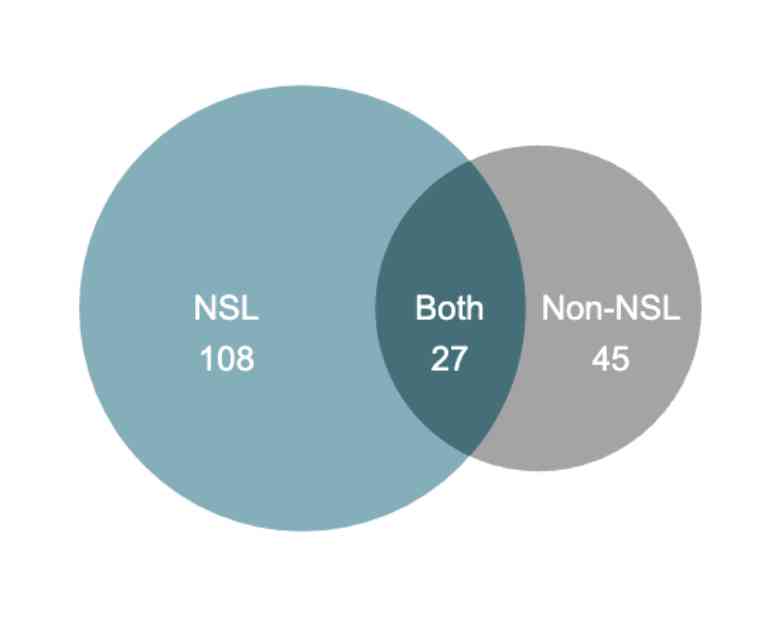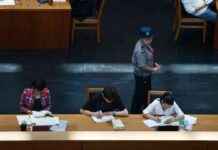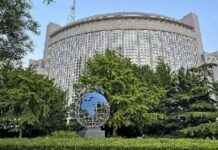Hong Kong’s National Security Law: A Deep Dive into its Impact and Implications
The implementation of Hong Kong’s National Security Law (NSL) on June 30, 2020, has brought significant changes to the political landscape of the region. The law, which aims to safeguard national security in the Hong Kong Special Administrative Region, has been met with mixed reactions from the international community. Tracking and analyzing the impact of this law is crucial in understanding its implications on the people of Hong Kong and the broader implications for freedom of expression and human rights.
Tracking Arrests and Charges under the NSL
Research conducted by Lydia Wong, Eric Yan-ho Lai, Charlotte Yeung, and Thomas Kellogg has provided valuable insights into the patterns of arrests and charges under the NSL. The data, which is regularly updated, offers a comprehensive view of the individuals affected by the law. Those included in the data meet specific conditions, such as being arrested by the Hong Kong Police National Security Department (NSD) or charged for offenses under the NSL. The term “sedition” is also highlighted, referring to a range of related crimes prescribed in Section 10 of the Crimes Ordinance.
The data reveals a troubling trend of crackdowns on free expression and dissent in Hong Kong. Individuals arrested or charged under the NSL face severe consequences, including denial of bail and freezing of assets. For instance, three companies, Apple Daily Limited, Apple Daily Printing Limited, and AD Internet Limited, were charged and had their properties frozen under the collusion provision of the NSL. The Hong Kong Alliance in Support of Patriotic Democratic Movements of China and Stand News also faced charges and asset freezes under the law.
Impact on Free Expression and Human Rights
The implementation of the NSL has had a chilling effect on free expression and human rights in Hong Kong. The targeting of media organizations and pro-democracy groups has raised concerns about the erosion of press freedom and civil liberties in the region. The arrest and charging of individuals for advocating terrorism or sedition demonstrate a crackdown on dissenting voices and political activism.
The data on individuals denied bail further underscores the challenges faced by those arrested under the NSL. The denial of bail can have serious implications for individuals awaiting trial, leading to prolonged detention and restrictions on their rights. Correcting previous oversights in the data, such as the exclusion of individuals charged with terrorism-related offenses, is essential in providing an accurate representation of the impact of the NSL on individuals in Hong Kong.
Analyzing the Long-Term Effects of the NSL
As we approach the three-year mark since the implementation of the NSL, it is crucial to assess the long-term effects of the law on Hong Kong’s political landscape and society. The entrenchment of a new status quo under the NSL raises questions about the future of democracy and freedom in the region. The targeting of dissenting voices and civil society organizations has created a climate of fear and self-censorship among the people of Hong Kong.
The implications of the NSL extend beyond the borders of Hong Kong, with global implications for human rights and international relations. The international community has closely monitored the developments in Hong Kong, raising concerns about the erosion of autonomy and freedoms guaranteed under the “One Country, Two Systems” framework. The impact of the NSL on Hong Kong’s status as a global financial hub and center for free speech is also a matter of concern for stakeholders both within and outside the region.
Challenges and Opportunities for Advocacy and Reform
In the face of these challenges, there are opportunities for advocacy and reform to uphold human rights and civil liberties in Hong Kong. Civil society organizations, legal experts, and human rights defenders play a crucial role in monitoring the implementation of the NSL and advocating for the rights of those affected by the law. International pressure and diplomatic efforts can also contribute to holding the Hong Kong authorities accountable for upholding human rights standards.
The role of media in reporting on the impact of the NSL and providing a platform for diverse voices is essential in promoting transparency and accountability. By shedding light on the experiences of individuals affected by the law, the media can amplify their voices and raise awareness about the need for reforms to protect human rights in Hong Kong. Collaborative efforts between local and international stakeholders are vital in addressing the challenges posed by the NSL and advocating for a more democratic and inclusive society in Hong Kong.
Conclusion
In conclusion, tracking and analyzing the impact of Hong Kong’s National Security Law is crucial in understanding its implications for freedom of expression, human rights, and democracy in the region. The data provided by researchers offers valuable insights into the patterns of arrests and charges under the law, highlighting the challenges faced by individuals affected by the NSL. As we continue to monitor the long-term effects of the law, there are opportunities for advocacy and reform to uphold human rights and civil liberties in Hong Kong. By working together to promote transparency and accountability, we can strive towards a more just and inclusive society for all in Hong Kong.

















